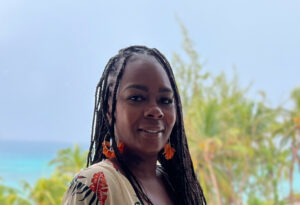Typically, the beginning of the calendar year is when new goals and resolutions are set – so let’s kick off the school year with an environmental sustainability resolution for your school or district!
Many sustainability programs were paused at the beginning of the pandemic, some which have still been paused until this upcoming school year. The reasons vary: Some programs were paused due to the suspension of services, such as recycling, some because there weren’t enough students in the building others because there simply weren’t enough employees. With students returning this school year in person, there is no time like the present to revisit your environmental and sustainability goals to do your part to help the environment and keep students safe and healthy.
A leader in this realm is Eden Hall Upper Elementary School, which serves grades 4-6 and earned the US Department of Education Green Ribbon School in 2019. This award is given to schools, districts, postsecondary institutions, and early learning centers’ cost-saving, health promoting, and performance-enhancing sustainability practices, ED-GRS celebrates these institutions and brings more attention to their work.
Women for a Healthy Environment offers a variety of programs to help schools with their sustainability efforts. Our programs include the Healthy Schools Recognition Program, EPA Flag Program, 1000 Hour Program and other technical assistance such as sustainability and green cleaning policies, lesson plans, work with Tower Gardens and more.
In an interview done with Eden Hall Upper Elementary School’s assistant principal, Joe Domagala, he discussed the steps he took to help his school earn the Green Ribbon recognition.
Domagala described how the building was designed around the biomes of the earth and incorporated several concepts of sustainability: “It was only natural that we built upon these structures in our academic programming and learning activities for our students. Teachers and staff across the building incorporate concepts in curricular areas as well as extracurricular opportunities such as in our Makerspace, Gifted and enrichment projects such as an Architectural Design Challenges, Science labs, Trout fish experiments, and many other exciting areas” said Domagala.
Even with the initial building being designed intentionally, there was still a lot of work to be done to earn the Green Ribbon Award. Domagala formed a team of students, staff, faculty, building and district administrators to incorporate all elements of sustainability in the school design, as well as academics. These teams then met periodically to brainstorm, identify and implement projects and learning activities, all while administrators worked to find resources and strategies to assist in carrying these out.
Eden Hall also utilized the Department of Education’s Pathways to Green Schools and their three pillars of sustainability to guide the team’s plan’s each academic year. In addition, they worked closely with WHE: “WHE’s programming gave us a strong foundation for identifying activities and practices in place that were used in our overall draft plan towards obtaining the Green Ribbon. Many of WHE’s initiatives, specifically the school report card, were elements that we were able to incorporate into our application. At the same time, there were many aspects of WHE’s programming that we did not have in place, and we used resources provided by WHE to assist us in improving what we do, and how we do it as it relates to overall sustainability and helping to educate our students, staff, and overall community”, said Domagala.
Domagala found it helpful to engage students, faculty, staff, and other key stakeholders in real-life, hands-on projects, especially those that “allow them to utilize concepts of sustainability in their work in order to see the benefits of how this helps the environment, our communities, and the impacts on their personal lives in practicality.”
When asked about what he hopes his students will take away as future environmental stewards, Domagala wants the “students to develop a fundamental understanding of the concepts of sustainability and its impact on the global environment. Many of our students are on the front lines of these initiatives, and in fact, come to us with ideas, suggestions, and desires for activities, assemblies, or to improve procedures in our building such as recycling in the cafeteria, reduction of paper waste, and other areas. Our students participate in sustainable architectural challenges with the support of local universities and others take their knowledge learned here to the middle and high schools.”
Domagala’s final piece of advice for schools who are starting on their environmental goals or have been working through them is that it’s okay to start small! Working with other schools within the district to build a support system was also helpful. “Each small step works to build greater recognition for the importance of our initiatives” said Domagala.
To learn more about how your school can get started on environmental goals this school year, check out the WHE website or reach out to the Healthy Schools Coordinator, Shannon Meyers at Shannon@womenforahealthyenvironment.org.





